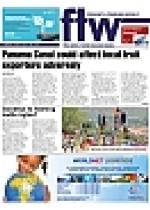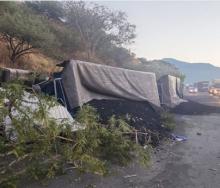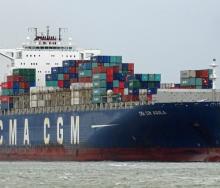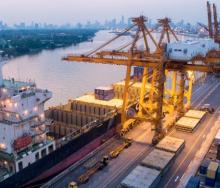Guidelines on
Certification of Origin
The World Customs
Organisation (WCO)
‘Guidelines on Certification
of Origin’, dated July 2014
and released for public
information reads as follows:
The origin of goods is
one of the crucial elements
for international trade.
Recognising the various
purposes in which the origin
of goods plays a vital role,
Customs administrations
around the world must
implement rules of origin
in an effective and efficient
manner.
What is certification of
origin? A set of comprehensive
rules of origin generally
comprises origin criteria to
determine the country of
origin/originating status of a
product and also procedural
requirements to support
a claim that the product
satisfies the applicable origin
criteria. Certification of origin
constitutes the primary part of
such procedural requirements.
On the other hand,
currently there are no clear
and effective international
standards on the definition
of a proof of origin and
related procedures. The
WTO Agreement on Rules
of Origin (RoO) is silent on
procedural aspects. Even
though the Revised Kyoto
Convention provides certain
definitions in Chapter 2 of
Specific Annex K which refers
to ‘Documentary evidence
of origin’, the provisions do
not recognise the increase
of free trade agreements
(FTAs) in recent decades
and the various concepts of
procedural requirements
included in these agreements.
In the case of preferential
trade, FTAs or legislation
on Generalised System of
Preferences (GSP) set out
the respective procedural
requirements.
The WCO offers a number
of definitions relating to
origin, such as certification
of origin, self-certification
of origin, proof of origin,
indication of origin, origin
criteria, consignment criteria,
GSP and FTA.
You may well derive benefit
from studying the guidelines.
Canned Mussels
in Airtight Metal
Containers Duty
Reduction
The South African Revenue
Service (Sars) has announced
the deletion of tariff
subheading 1605.53.20
(---Other, in airtight metal
containers:) and insertion of
tariff subheadings 1605.53.2
(Other, in airtight metal
containers); 1605.53.21 (----
Smoked); and 1605.53.22
(---- Other) to reduce the
rates of customs duty on
canned mussels in airtight
metal containers from 25%
ad valorem to free.
The reasoning for the tariff
amendments can be found
in the International Trade
Administration Commission
of South Africa (Itac) Report
513.
So if the retail price
of canned mussels is not
reduced, you know that
someone is profit taking,
which is not the intention of a
tariff reduction.
Polyurethane
Prepolymers ‘General’
Duty Increase
Sars announced the insertion
of tariff subheadings
3909.50.10 (-- Prepolymers
with an NCO percentage of
less than 20% by mass kg
10%) and 3909.50.90 (--
Other) and the substitution of
tariff subheading 3909.50 (-
Polyurethanes) to increase the
‘general’ rate of customs duty
on polyurethane prepolymers
from free to 10% ad valorem.
The reasoning for the tariff
amendments can be found in
the Itac report 514.
Duty Calls’ Watch List
Comment on the following
is due:
Sars draft Customs Control
Act, 2014 rules extended to 15
April 2016.
DUTY CALLS
25 Mar 2016 - by Riaan de Lange
0 Comments
FTW - 25 Mar 16

25 Mar 2016
25 Mar 2016
25 Mar 2016
25 Mar 2016
25 Mar 2016
25 Mar 2016
Border Beat
17 Jun 2025
30 May 2025
Poll
Featured Jobs
New












